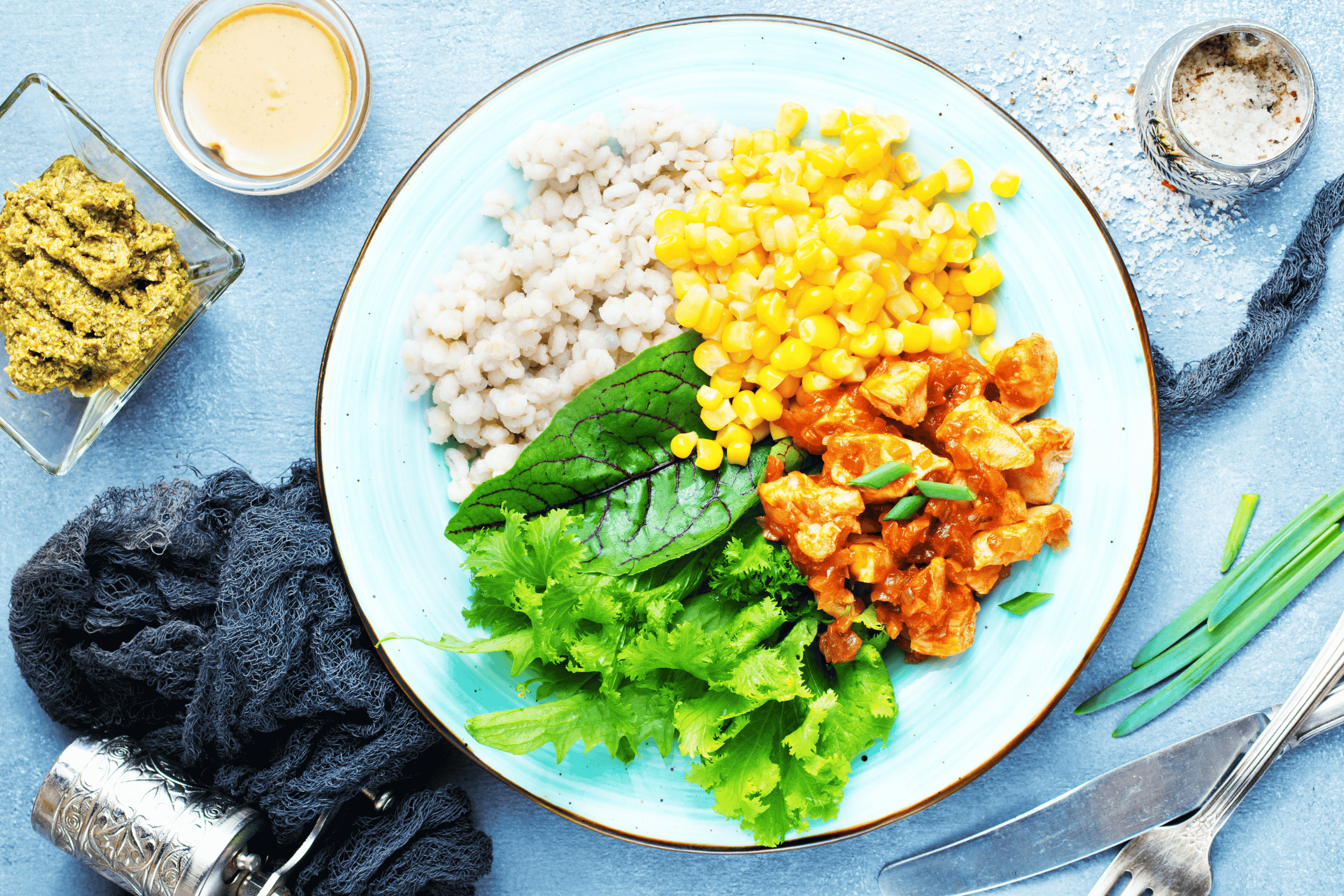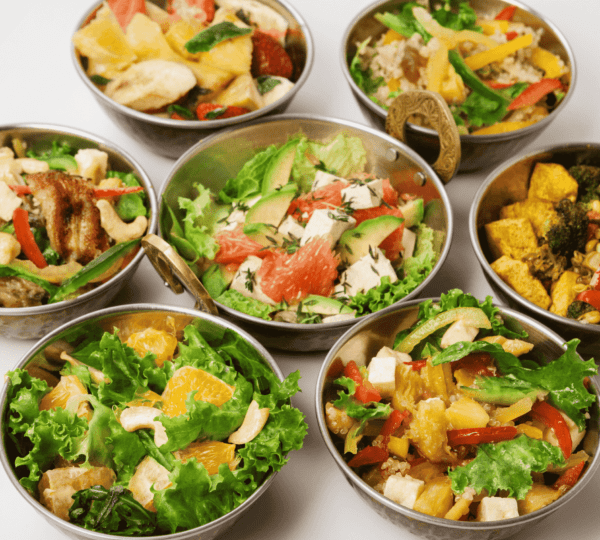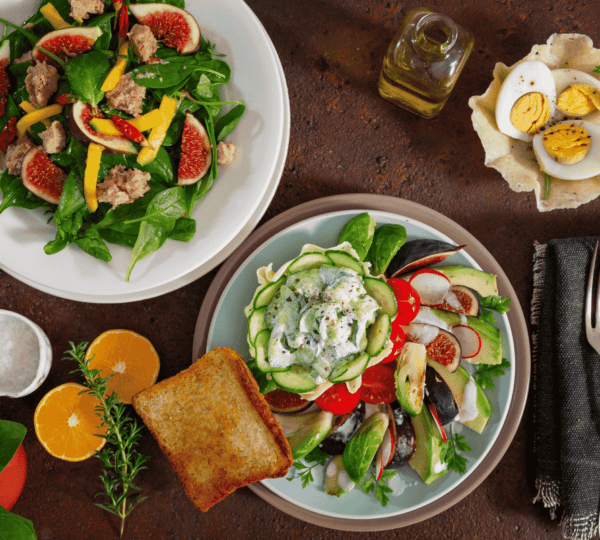
Vegetarian and Vegan Dishes from Different Cultures: A Journey Through Global Flavors
I particularly enjoy reading, so I decided to make a trip to the bookstore to pick up a couple of new books. I was in the novel section when I noticed a woman holding a book I had recently bought and read. She looked indecisive and was about to return it to the shelf when I said, “Oh, that’s a great choice! I just finished it, and I couldn’t put it down.” She paused, looking at me with a mix of curiosity and relief. “Really? I’m not quite sure . I usually read thrillers, and this one seems a bit out of my comfort zone.”
I smiled and replied, “I get that. I was hesitant at first too, but sometimes trying something different brings unexpected rewards.” We chatted a bit more about the book and our favorite genres, and eventually, she decided to give it a try. Later, in the evening, while having dinner, I couldn’t help but think about how sometimes just a small nudge can open us up to new experiences. It’s the same with food. For many people, the idea of eating vegetarian or vegan dishes might feel unfamiliar or even unappealing, especially if they’re used to meat-based meals. But exploring the world of plant-based cuisine can be an eye-opening journey, revealing flavors, textures, and traditions from cultures around the world.
Vegetarian and vegan dishes are not just a trend, they are woven into the culinary traditions of many cultures. And there are health benefits too. According to research from Harvard Health, plant-based diets are linked to lower risks of heart disease, high blood pressure, diabetes, and certain cancers. Healthline adds that these diets are often rich in essential nutrients like fiber, antioxidants, and vitamins, which can contribute to better overall health and longevity. For anyone, whether a lifelong vegetarian or someone looking to incorporate more plant-based meals, these dishes offer both nutritional value and incredible flavors.
The Growing Popularity of Vegetarian and Vegan Diets
In recent years, the global appetite for vegetarian and vegan diets has grown significantly. According to a 2023 report by the Plant-Based Foods Association, the plant-based food sector in North America alone grew by 27% in just the last two years. The shift toward vegetarianism and veganism isn’t just about food preferences; it’s a movement driven by concerns over health, the environment, and animal rights.
In fact, a study published in the Journal of Nutrition in 2023 found that plant-based diets offer several health benefits, such as lower risks of chronic diseases like heart disease, type 2 diabetes, and certain cancers. More people are adopting plant-based diets not just as a lifestyle choice but as a way to improve overall health and sustainability. As a result, vegetarian and vegan dishes are no longer limited to niche markets but have become a central part of many food cultures worldwide.
Vegetarian and Vegan Dishes Around the World
1. India – Chana Masala (Chickpea Curry)
India is home to one of the largest vegetarian populations in the world, with around 30% of the population following a vegetarian diet. One of the most beloved dishes in Indian cuisine is Chana Masala – a hearty and flavorful chickpea curry made with a blend of spices like cumin, coriander, turmeric, and garam masala. This dish is not only vegan but also packed with protein, fiber, and essential vitamins. Traditionally served with rice or flatbreads like naan or roti, Chana Masala is a comfort food staple in Indian households and restaurants worldwide.
Why it’s great: Chickpeas are a fantastic source of plant-based protein, while the spices in Chana Masala provide anti-inflammatory benefits and boost digestion. According to nutrition expert Dr. Neha Khatri, a registered dietitian, “Chickpeas are high in fiber, making them an excellent choice for regulating blood sugar levels and supporting heart health.”
2. Mexico – Tacos with Plant-Based Fillings
In Mexico, tacos are a national treasure, and many traditional recipes can easily be made vegetarian or vegan by swapping out meat for plant-based ingredients. Tacos de nopales (cactus tacos) are a popular vegetarian option, where tender strips of cactus are sautéed with onions, tomatoes, and spices. Another vegan favorite is tacos de frijoles (bean tacos), which use mashed black beans as the main filling.
Why it’s great: Nopales are rich in antioxidants and dietary fiber, while black beans are a fantastic source of protein and essential nutrients like iron and folate. Recent studies, such as one from the American Journal of Clinical Nutrition in 2023, have shown that beans help to lower cholesterol and improve heart health, making them an excellent food choice for anyone seeking to improve their diet.
3. Ethiopia – Misir Wat (Lentil Stew)
Ethiopia is famous for its rich, flavorful vegetarian dishes, and Misir Wat is one of the most iconic. This hearty lentil stew is spiced with berbere, a blend of chili, garlic, ginger, and other spices, and served with injera, a traditional sour flatbread made from teff flour. Misir Wat is not only vegan but also packed with iron, protein, and fiber.
Why it’s great: Lentils are a fantastic source of plant-based protein and iron, which is especially important for vegans and vegetarians. Teff, the grain used in injera, is high in calcium, fiber, and resistant starch, making it a highly nutritious choice. According to recent research published in Foods Journal (2023), Misir Wat and other lentil-based dishes are excellent for supporting digestive health and reducing inflammation.
4. Thailand – Pad Thai with Tofu
Pad Thai, a stir-fried noodle dish from Thailand, is often made with shrimp or chicken, but it can easily be transformed into a vegan dish by replacing the animal proteins with tofu. The tofu absorbs the sweet, salty, and tangy flavors of the sauce, making it a satisfying and delicious dish. Garnished with peanuts, lime, and fresh herbs, Pad Thai is a delightful explosion of flavors in every bite.
Why it’s great: Tofu is a versatile and protein-rich ingredient that also provides a good source of calcium and iron. The peanuts and lime add healthy fats and vitamin C, making Pad Thai a well-balanced dish. Research published in The Journal of Food Science (2023) suggests that tofu, when consumed as part of a balanced diet, may support bone health and reduce the risk of certain cancers.
5. Italy – Vegan Risotto
Italy is known for its pasta, pizza, and risotto, but many traditional Italian dishes can be made vegan by swapping out cheese and other animal products for plant-based alternatives. A classic example is vegan Risotto alla Milanese, where the creamy rice dish is made with vegetable broth and nutritional yeast instead of butter and Parmesan. The addition of saffron gives the dish a beautiful golden hue.
Why it’s great: Risotto made with vegetable broth is naturally lower in calories and fat while still providing a rich, creamy texture. Saffron, used in this dish, is not only flavorful but has also been shown to have anti-inflammatory and mood-boosting properties. A 2023 study in Nutrients found that saffron has potential benefits for managing anxiety and depression, making this dish both comforting and nutritious.
6. Greece – Spanakopita (Spinach Pie)
In Greece, Spanakopita is a popular savory pastry made with spinach, onions, and herbs, wrapped in layers of crispy phyllo dough. Traditionally, this dish includes feta cheese, but it can easily be made vegan by substituting the cheese with plant-based alternatives or simply omitting it. This savory pie is a great way to enjoy leafy greens in a delicious and satisfying form.
Why it’s great: Spinach is rich in iron, calcium, and vitamins A and K, making Spanakopita a great option for supporting bone health and preventing iron deficiency. Recent studies have highlighted the importance of incorporating leafy greens like spinach into a balanced diet to support heart health and reduce the risk of chronic diseases.
The Health Benefits of Vegetarian and Vegan Dishes
Vegetarian and vegan dishes are often rich in essential nutrients like fiber, vitamins, and minerals while being lower in saturated fats compared to meat-based meals. According to nutrition experts, plant-based diets can help manage weight, reduce the risk of heart disease, and improve digestive health.
A 2023 study published in The Lancet found that vegetarian and vegan diets are linked to a lower incidence of chronic diseases like hypertension, type 2 diabetes, and certain cancers. These diets tend to be high in plant-based proteins, healthy fats, and antioxidants, which support overall health and well-being.
Conclusion
Exploring vegetarian and vegan dishes from different cultures not only exposes us to a wide range of flavors but also encourages healthier eating habits. Whether you’re looking to reduce your meat consumption, improve your health, or simply try something new, these plant-based dishes are a great place to start. From the spicy curries of India to the fresh, herb-filled dishes of Greece, there’s a whole world of flavors waiting for you to discover.
By embracing these diverse and nutritious dishes, we can broaden our culinary horizons, support sustainable food practices, and enjoy meals that nourish both the body and the soul.
References:
- Plant-Based Foods Association (2023). Report on Plant-Based Food Sector Growth.
- Journal of Nutrition (2023). Study on the Health Benefits of Plant-Based Diets.
- American Journal of Clinical Nutrition (2023). Impact of Beans on Heart Health.
- Foods Journal (2023). Research on Lentils and Digestive Health.
- The Journal of Food Science (2023). Benefits of Tofu in Plant-Based Diets.
- Nutrients (2023). Study on the Health Benefits of Saffron.
- The Lancet (2023). Link Between Plant-Based Diets and Reduced Risk of Chronic Diseases.













